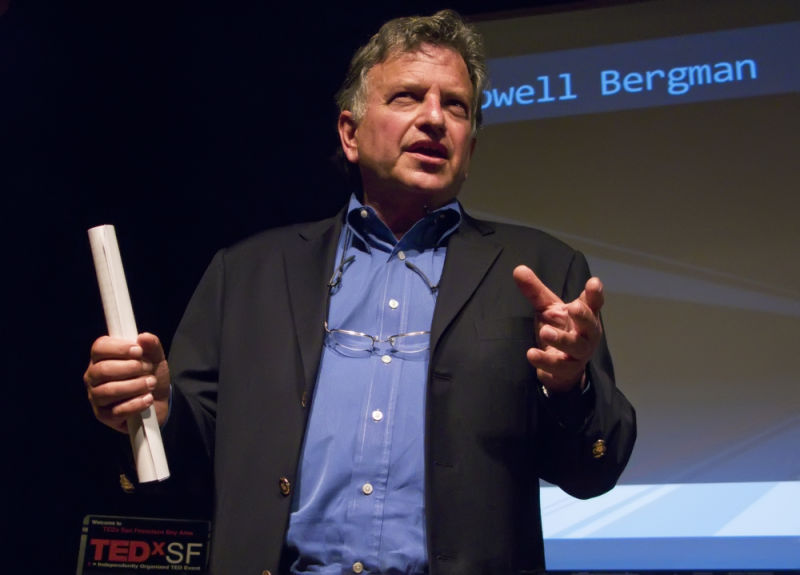"You could tell they were changing the game, given the amount of attention they were getting from authorities," says Bergman. "These people were interested in political change, and that was really threatening."
That attention, he says, came directly from the then-revolutionary act of turning the Second Amendment on its head. Bergman says, that move showed the intellectual brilliance of party leaders.
"They represented not people who were self-educated like Malcolm X, or university- or college-educated like Martin Luther King."
Instead, they turned to the populism of Marxist theory. "They described themselves as the lumpen proletariat, meaning they are not the workers -- they are the people below the workers," discarded by society, Bergman says.
"They quoted Che Guevara, saying what they were doing was exhausting all legal means before they declared open revolution. And that got people's attention."
They had another radical idea, to exercise their right to police the police. "They were the dashboard cams of the 1960s," Bergman says.
The Panthers used the image of the armed black man to pose questions about police brutality and civil rights. The response was an FBI target on the Panthers' backs and the transformation of their leaders into media darlings.
In the end, Bergman says, both of those factors played a significant role in the Panthers' disintegration in the early 1980s.
"There were cocktail parties in Hollywood and Beverly Hills" says Bergman. "It was the Radical Chic, and the Panthers' leaders played to that."
But as they became media stars, their various factions deteriorated, competing for power as well as headlines. Many in the rank and file, Bergman says, were swallowed up by the splintering party, paying the true price of their leaders' fame.
It was those who believed in the cause rather than the cult of celebrity, Bergman says, who were left dead or in jail long after the spotlight on the party had been switched off.
Bergman points to the case of Geronimo Pratt, a Vietnam War hero who was jailed for 27 years before his conviction was overturned. After the furor over the Panthers died down, he says, those like Pratt were left to suffer the consequences.
"Very little attention has been paid to many of those people," Bergman says.
